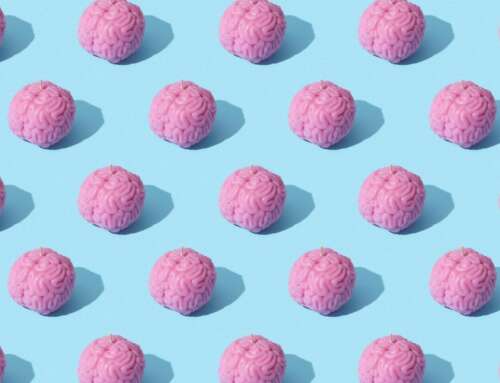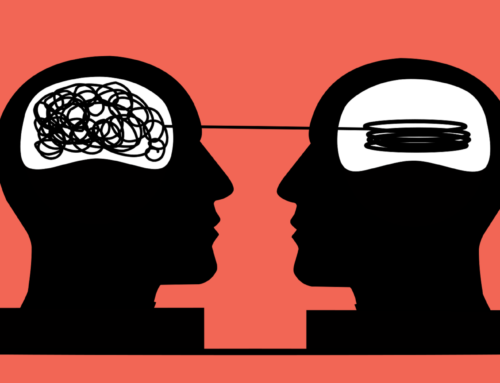Depression is a devastating disorder. Once you have had an episode of depression your susceptibility to having further periods of depression increases.
Resilient Youth’s research on 160,000 young people shows the rates of students who are at risk of depression increases across the years of school.
| Years | Girls Boys |
| 3-4 | 26% 25% |
| 5-6 | 26% 23% |
| 7-8 | 35% 25% |
| 9-10 | 41% 27% |
| 11-12 | 43% 33% |
The effectiveness of antidepressant medications is patchy at best for children and teenagers. Sadly the preparedness for young people to seek out and sustain psychological support for depression is also patchy. For this reason we need to look upstream and see what we can do to lessen the risk of depression, if not prevent it entirely.
What sets us on a course for depression?
Having adverse childhood experiences and trauma increase the chances of depression. With more adversity during childhood comes increased chance of depression- 5-times the risk for depression and 12 times the risk for suicide attempts.
Children who lose a parent are at increased risk for depression especially if the less occurs before their 10th birthday.
People who turn their anger turned inwards and are preoccupied with a negative image of themselves also are at high risk.
Feeling marginalized, disempowered, ostracised and hopeless accentuates the risk.
Interrupted or ambivalent grief can also be a risk for depression. If you lose someone you love but also dislike, the mix of anger and sadness can be toxic. If you can put the anger aside and focus on the sadness and loss you heal and come out the other side (mourning). If you, instead, focus on the anger you turn it inwards and get melancholia.
How depression is different from being sad or tired
In writing a paper of preventing depression there is a risk of being seen to trivialise the severity of depression. Let’s be clear: depression is a life threatening condition that is ongoing. It is not just a sad moment or a bad day or two.
When people are depression they:
- Can’t function – it cripples them
- Lose pleasure in the things they used to like (anhedonia)
- Feel deep grief or deep guilt
- Go form hopeful to helpless
- Can’t sleep well the structure of their sleep patterns become disorganised
- Can’t eat well-change in appetite
- Experience weight changes due to changes in metabolism
- Have increased levels of glucocorticoids
This is not indulgence. This is biology
Brain function and depression
These neuroanatomical areas associated with depression include over-activation in two parts of the frontal lobes: the ventromedial prefrontal cortex (VMPFC), the lateral orbital prefrontal cortex (LOPFC)
This consistent with the pattern of negative, ruminative thinking we often see in depressed people.
There is also under-activation in the dorsolateral prefrontal cortex (DLPFC). This is consistent with the difficulty many depressed people have in making decisions and seeing the pros as well as the cons of a situation.
Ways to prevent depression
The CPR Approach
We need to build families, schools and communities in which everyone is
Connected, Protected and Respected
Learn about emotions
Our emotions are our internal senses. Emotions work best when they flow through us. We can be swept up in a fury, struck with desire, tremble with panic or bubble with happiness. We talk of emotions in active ways and when we are healthy they shift and flow. It is when we become stuck with an emotion for too long that problems begin. We need to help all people increase their emotional intelligence not only to understand themselves but also to equip better to create great relationships.
Mood Shifters
While depression is much more than a bad mood, we can all learn from getting out of our bad moods ways to help protect us against depression.
We need to help people learn to become mood shifters- to manage their bad moods and to develop self-compassion.
Unstick yourself- It is better to be active than it is to ruminate. Going over and over something doesn’t help. Take small actions toward solving a problem or worry. If you can’t do that, go for a run, a walk, or a swim and shake out the bad mood.
Don’t trust yourself totally. When we are in a bad mood we usually don’t think clearly. It is similar with depression. It can cloud your judgement and cause you overemphasise the negative aspects of situations while discounting the positives. Check your thinking out with someone you trust. Saying I’m thinking …. What do you think? Is it a right idea or a wrong idea? Getting another perspective can be helpful but talking it through is essential
Become a wise time traveller. Fearing or worrying about the future contributes to anxiety. Intentionally redirect your mind to what is happening in the here and now, you’ll increase your mental energy reserves so you can spend more time on enjoyable tasks.
Go past the past. Time spent reliving the past is pointless. You can’t shift something that has already happened. All you can do is live in the present in a way that creates a better future. You can’t do that if all your time is spent going over the past.
Give yourself a job. Make a plan for each day to do one thing to achieve something for yourself and one thing to help someone else.
Don’t be so rude. Most people who get into bad moods say or think to themselves the most awful degrading things. Have a rule: if I wouldn’t say it to a friend, then don’t say it to myself.
Sleep disturbance is a common element in depression and maintenance of good sleep patterns powerfully protects against depression.
Neurochemistry & Depression Prevention
Despite knowing our neuro-chemistry only explains part of the puzzle of depression, there are some interesting relationships. Norepinephrine relates to energy and low levels explain psychomotor retardation and slow reaction times of people with depression. Low levels of serotonin explain rumination, sadness, despair, and guilt. You might want to read my paper on Brain Fuel and Neurochemistry.
Low levels of dopamine relate to feelings of pointlessness and loss of pleasure Dopamine has a fundamental role in motivation and motor activity, and cytokines have been shown to decrease the release of dopamine in the basal ganglia in association with decreased effort-based motivation as well as reduced activation of reward circuitry in the basal ganglia, in particular the ventral striatum.
There are specific things we can do of alter our neurochemical balance including increasing the amount of positive feedback we receive, rhythmic movements, changing our diet and our levels of social interaction.
Reduce Inflammation
One school of thought equates depression with being sick. It has been hypothesised that the social avoidance and loss of pleasure associated with depression helps us preserve energy for fighting infections and healing wounds. The hyper-vigilance characteristic of anxiety disorders gives us protection from attack and subsequent pathogen exposure.
Anyone who has had a sore throat, rash or a sprained ankle knows about inflammation. These are normal appropriate responses of the immune — your body’s defense system.
This kind of inflammation is good. We need it to survive. The trouble occurs when that defense system runs out of control.
An overactive immune response and too much inflammation can result in allergies, rheumatoid arthritis, autoimmune diseases and asthma. This is bad inflammation.
Clinical depression is associated with a 30% increase of inflammation in the brain. In 2012, a study published in Biological Psychiatry found an association between the numbers of depressive episodes experienced and increased levels of an indicator of inflammation called C-reactive protein.
The process appears to be that a stressor activates key inflammatory pathways in the body, which leads to increases in the circulating levels of pro-inflammatory cytokines, such as interleukin-6 (IL-6). In essence, the body mounts an immune response not against a pathogen, but against a threat to our self-esteem.
The list of things that cause inflammation incudes:
- Poor diet—mostly sugar, refined flours, processed foods, and inflammatory fats such as trans and saturated fats. Obesity is an inflammatory state.
- Lack of exercise
- Stress
- Hidden or chronic infections with viruses, bacteria, yeasts, or parasites
- Hidden allergens from food or the environment
- Toxins such as mercury and pesticides
- Mould toxins and allergens
You feel what you eat
Your pantry plays a powerful role in your mood.
Whole Foods — Eat a whole foods, highfibre, plant-based diet, which is inherently anti-inflammatory. That means choosing unprocessed, unrefined, whole, fresh, real foods
Give yourself an oil change by eating healthy monounsaturated fats in olive oil, nuts and avocados
Omega 3- Omega-3s are an important part of cell membranes vital to brain functions and getting more omega-3 fats from small fish like sardines, herring, sable, and wild salmon.
Judith Wurtman, co-author of “The Serotonin Power Diet’’, advocates a carbohydrate-rich diet for women, whose brains seem to deplete their store of serotonin more rapidly than men. She recommends that women eat plain pretzels, crackers, or bread, daily at around 4 in the afternoon, whe they feel themselves lacking energy or becoming irritable. This can be especially helpful to those suffering from premenstrual syndrome.
Felice Jacka at Deakin University in January 2017 published The SMILES Trial and found that people with depression can improve by eating a modified Mediterranean diet.
The ModiMed Diet
Encouraged foods: whole grains, fruits, vegetables, legumes, low-fat/ unsweetened dairy, raw unsalted nuts, lean red meat, chicken, fish, eggs, and olive oil
Discouraged foods: sweets, refined cereals, fried food, fast food, and processed meat. Drinks: maximum two sugar-sweetened beverages per week and for adults a maximum two alcoholic drinks a day, preferably red wine.
Probiotics and depression
The human intestine harbors nearly 100 trillion bacteria that are essential for health.
Micro biota may play a role in the relation between inflammation and anxiety. Several reports show that experimental manipulations that alter intestinal micro biota impact anxiety-like behavior.
There is little published work concerning the effects of probiotics on depression or anxiety symptoms in humans. In the limited work that does exist there is evidence that probiotics have similar antidepressive and anxiolytic effects as those observed in preclinical studies.
Find ways to make exercise fun
There is a solid evidence base for the role of exercise as an effective treatment strategy for depression.
Regular exercise lessens systemic inflammation via homeostatic adaptation. Fitness and exercise reduces leptin, elevated levels of which are also implicated in depression.
Mounting evidence tells us that regular exercise reduces inflammation, and is key for improving your mood and erasing the effects of stress.
Physical exercise contributes a great deal to happiness. Regular exercise, three times a week for 30-40 minutes of aerobic exercise is equivalent to some of our most powerful psychiatric drugs in dealing with depression or sadness or anxiety.
Make a contribution
The pursuit of happiness and fulfillment for its own sake is misguided. While there is benefit in thinking positively, it is what you do with those thoughts that matter.
Pursuing happiness or pleasure for its own sake has a short-term gain but if it is an end in itself, often ends up feeling pointless. Humans habituate quickly. What was yesterday’s luxury can become today’s expected occurrence and tomorrow’s tedious chore. Directing positivity towards improving relationships as well as making a meaningful contribution to other people’s lives is much more likely to result in contentment as well as the prevention of depression.
Improve Relationships
Just as most our vulnerabilities occur in the context of our relationships, so do our risk factors. This is true for depression. Learning to maintain successful relationships is a basis for mental health. You can only be as healthy as your relationships.
In 2016, we published through Gen Next, 6 articles on how to build the Relationship Quotient (RQ) and specifically discussed the development of the five features of positive relationships: Trust, Forgiveness, Integrity, Hope, Compassion
Deal with hurt
Pain that is not transformed is transmitted. All relationships have moments of challenge where we can absorb hurt and loss and it sits within us as a wound. A wound that is then inflicted on others we have relationships with. Alternatively we can transform hurt through forgiveness. This is why when we forgive someone who has hurt us then people who benefit most are ourselves.
Build Resilient Mindsets
Resilient Youth’s research on 160,000 young people has revealed a cluster of factors that together create the ‘resilient mindset’. This can be contrasted with an anxious mindset in which people habitually freeze in the face of new challenges and an anxious mindset where people respond to challenges with flight, distraction or become angry, distant and uncommunicative.
The establishment of a Resilient Mindset increases engagement in learning, motivation and academic success. It also relates to the factor that most predicts success in life and in relationships-the ability to regulate our emotions.
The link between anxiety & depression
Exposure to psychosocial stress is one of the most robust predictors of developing depression.
Clinically, depressive episodes are associated with deregulation of the stress pathway, hypothalamic–pituitary–adrenal (HPA) axis and resolution of depression occur with normalisation of the HPA axis.
Increased stress hormones or glucocorticoids are found in people with depression and have also been associated with increased inflammation.
Data from the Dunedin Study in New Zealand, following 1,000 participants from birth to 32 years, have demonstrated that individuals experiencing stress in childhood resulting from maltreatment, abuse, social isolation and economic hardship are twice as likely to suffer chronic inflammation.
Stress is the result of experiencing unpredictable and uncontrollable events that overwhelm you. Trauma occurs when people have these experiences repeated over a prolonged period.
A comprehensive stress management plan is more than just being positive or mindful.
Prevention of anxiety disorders requires strategies to use when we freeze in the face of threat and feel powerless and unable to act constructively, we enter fight/ flight and either want to avoid or become angry or aggressive as a survival mechanism and when we use tend, mend and befriend to soothe and calm ourselves and the people that we are with.
The CPR approach
Preventing depression occurs when we focus on establishing families, schools and communities that allow people to be:
- Connected
- Protected
- Respected
Feeling connected gives a sense of belonging, of being valued and being part of something meaningful.
Feeling protected gives a freedom to feel safe not just from physical harm but also from bullying, denigration or the lowered sense of personal identity that occurs when other people belittle you. Feeling respected builds relationships. When we treat others as we would like to be treated, we strengthen relationships. We build trust, forgiveness, integrity, hope and compassion.
When our relationships are strong and positive we have the possibility of achieving our potential as well as healing our hurts and shames and wounds.
Compassion and love are our some of our oldest medicines. When we add in hope and connectedness, we have the four most powerful ingredients of healing and of preventing depression.
This is the reason we do what we do
This is so that when someone shrinks into despair, thinks that life is not worth living or that the world would in some strange way be better off without them that they think about all the things they have learned in their lives and think… maybe I’ll wait and see what shows up.
This is the reason we do what we do.
This is the reason you do what you do.
Thank you for doing it.
– Andrew Fuller








Leave A Comment